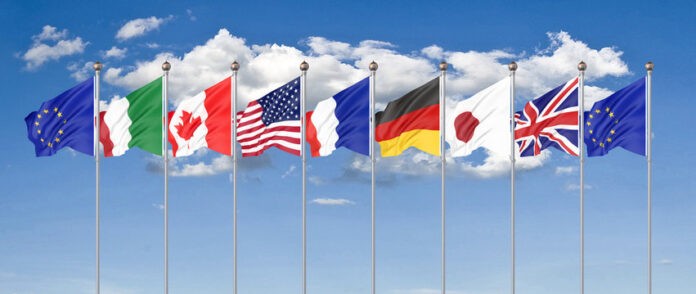
Key highlights:
- The aim is to create a more stable and secure environment for digital currencies while addressing issues such as fraud, money laundering, and the use of digital currencies for illicit purposes.
- The regulatory framework would establish standards for areas such as anti-money laundering, tax evasion, and consumer protection.
- Collaborative efforts have the potential to create a more unified global approach to digital currencies, but there is a risk that too many constraints could discourage innovation.
The G7 summit to be held in Japan in May will certainly be an important event for the future of cryptocurrencies. As reported by Kyoto News, the G7 countries have recently announced that they will collaborate on strict crypto regulation at the upcoming summit in Japan this May.
FTX’s bankruptcy due to managerial errors in November 2022 and the loss of billions of dollars in client funds accelerated the process of moving this topic to the meeting.
Cryptocurrencies have long been touted as a way to bypass traditional financial systems and escape the grasp of governmental control. As we all know, the world of cryptocurrencies has been something of a Wild West, with minimal regulation and oversight. This has led to a host of issues, ranging from fraud and money laundering to the use of digital currencies for illicit purposes.
But now, some of the world’s most powerful governments are coming together to create a regulatory framework for these very same digital currencies. This is a development that could have far-reaching implications for the future of the crypto industry.
The G7 countries consist of Canada, France, Germany, Italy, Japan, the United Kingdom, and the United States. These nations are known for their economic power and influence, but they don’t always see eye to eye on every issue.

Different Regulatory Frameworks
Japan already has its own crypto regulations. Other Asian countries such as South Korea and Hong Kong are taking a positive approach to blockchain technology and cryptocurrencies. There are also a few financial regulations in the US and Canada. The European Union’s Markets in Crypto-Assets (MiCA) regulation will enter into force in 2024. The United Kingdom is one of the countries that apply its own regulations.
The Financial Stability Board, headquartered in Switzerland, published recommendations 5 months ago to create a regulatory framework that says crypto assets should also be subject to regulations like commercial bank activities. The FSB plans to announce the final version of the framework in July 2023.
In order to develop effective regulations, the G7 countries will need to think outside the box and embrace innovative solutions. This could include exploring new technologies, such as blockchain-based identity verification systems, or creating novel regulatory models that strike a balance between consumer protection and fostering innovation. The collaborative efforts of these powerful nations have the potential to create a more stable, secure, and innovative environment for digital currencies.
This framework would lay out standards for areas like anti-money laundering, tax evasion, consumer protection and more.
By collaborating on a common set of crypto regulations, the G7 countries can pave the way for a more unified global approach to digital currencies. One of the topics at the G20 meeting to be held in April may be cryptocurrencies.
Potential Outcomes from the Meeting
Tax enforcement will intensify. The G7 nations are probably going to crack down on cross-border crypto tax evasion. They will likely require crypto exchanges to report transactions and profits to users’ home countries to ensure people are paying capital gains taxes. This may reduce tax evasion but will make it harder to avoid taxes on crypto gains.
Consumer safeguards will increase. We’ll probably see the G7 endorse some global standards for protecting crypto consumers, e.g. disclosing risks, segregating customer funds, preventing hacks and scams, etc. More consumer protection is good, but this could also discourage innovation by placing too many constraints on crypto companies.














